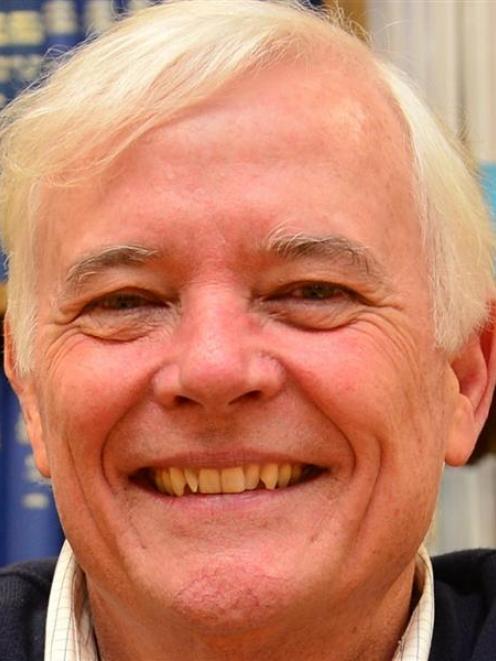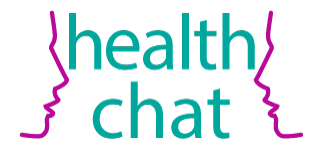Klein Buendel celebrated its 20th Anniversary in 2022! Our scientists and staff continued to pursue rigorous behavioral science research with numerous national and international collaborators. Our creative team designed and engineered multiple web-based programs to positively impact the health and safety of people’s everyday lives.
In 2022, we launched four new prime research projects and started two new subaward collaborations with Emory University and Harvard University. We published (or e-published ahead of print) ten research papers in peer-reviewed journals and presented research analyses and outcomes at eight regional, national or international conferences.
In February, a targeted version of our WayToServe responsible alcohol server training program was launched for the state of California by our licensee, Wedge Communications. WayToServe is now sold in Colorado, California, New Mexico, Oregon, and Washington.
In September, we welcomed a new Scientist, Dr. Kayla Nuss, to Klein Buendel. Dr. Nuss’ research interests center on motivation for physical activity, how wearable technology supports or thwarts motivation in various populations, and how to optimize wearable technology to support the development and maintenance of engagement in physical activity. Dr. Nuss graduated with a Ph.D. in Bioenergetics from Colorado State University in 2021.
In October, Dr. David Buller, Director of Research, participated in a discussion on responsible vendor practices for alcohol and cannabis sponsored by the New Jersey Prevention Network.
In December, Dr. Barbara Walkosz, Senior Scientist, gave a presentation for NATO and the Center for Media Literacy. The webinar was about the pandemic, the dangers of misinformation, health communication, and media literacy.
Prime Projects Launched in 2022
“Computer-based Learning to Enhance ADRD Care in Prison: Just Care for Dementia.” Phase I STTR grant to Klein Buendel from the National Institute on Aging (AG078103; Dr. Susan Loeb from Penn State University, Principal Investigator).
“Translation of an In-Person Brief, Bystander Bullying Intervention (STAC) into a Technology-Based Program.” Phase II STTR grant to Klein Buendel from the National Institute on Minority Health and Health Disparities (MD014943; Dr. Aida Midgett from Boise State University, Principal Investigator).
“#4Corners 4Health: A Social Media Cancer Prevention Program for Rural emerging Adults.” R01 grant to Klein Buendel from the National Cancer Institute (CA268037; Dr. David Buller from Klein Buendel and Dr. Andrew Sussman from the University of New Mexico, Multiple Principal Investigators).
“An Interactive Education Program to Reduce High Risk Behavior in Adolescents.” Fast Track STTR grant to Klein Buendel from the Eunice Kennedy Shriver National Institute of Child Health and Human Development (HD110333; Dr. Christopher Houck from Lifespan Health Systems and Rhode Island Hospital, Principal Investigator).
For these new prime projects and two new subaward projects, we are collaborating with primary investigators from the following universities and organizations:
- Boise State University
- Colorado State University
- Emory University
- Georgetown University
- Harvard University
- Penn State University
- Rhode Island Hospital/Lifespan Health Systems
- University of Arizona
- University of Colorado
- University of New Mexico
- University of Oregon
- University of Utah
2022 Publications*
Buller DB, Pagoto S, Henry KL, Baker K, Walkosz BJ, Hillhouse J, Berteletti J, Bibeau J, Kinsey A. Persisting effects of a social media campaign to prevent indoor tanning: a randomized trial. Cancer Epidemiol Biomarkers Prev. 2022; 31(4):885-892.
Wallace GT, Buller DB, Pagoto S, Berteletti J, Baker KE, Mathis S, Henry KL. Nonmedical prescription drug use among female adolescents: the relative influence of maternal factors, social norms, and perceptions of risk and availability. Drugs (Abingdon, England). 2022. Published online ahead of print. doi: 10.1080/09687637.2022.2028727
Myers VH, Loeb S, Kitt-Lewis E, Jerrod T. Large-scale evaluation of a computer-based learning program to increase prison staff knowledge on geriatric and end-of-life care. Int J Prison Health. 2022. Published online ahead of print. doi: 10.1108/IJPH-08-2021-0078.
Greene MM, Schoeny ME, Berteletti J, Keim SA, Neel ML, Patra K, Smokse S, Breitenstein S. ezPreemie study protocol: a randomized controlled factorial trial testing web-based parent training and coaching with parents of children born very preterm. BMJ Open. 2022;12: e063706. doi: 10.1136/bmjopen-2022-063706.
Midgett A, Doumas DM, Buller MK. Posttraining outcomes, acceptability, and technology-based delivery of the STAC Bystander Bullying Intervention teacher module: mixed methods study. JMIR Form Res. 2022 Aug;6(8):e40022. doi: 10.2196/40022.
Buller DB, Pagoto S, Henry KL, Baker K, Walkosz BJ, Hillhouse J, Berteletti J, Bibeau J. Effects of engagement with a social media campaign for mothers to prevent indoor tanning by teens in a randomized trial. J Health Commun. 2022 Jun 3;27(6):394-406.
Buller D, Walkosz B, Henry K, Woodall WG, Pagoto S, Berteletti J, Kinsey A, DiVito J, Baker K, Hillhouse J. Promoting social distancing and COVID-19 vaccine intentions to mothers: randomized comparison of information sources in social media messages. JMIR Infodemiol. 2022 Jul-Dec;2(2):e36210. doi: 10.2196/36210.
Dobbinson SJ, Buller DB, Chamberlain JA, Simmons J, Buller MK. Solar UV measured under built-shade in public parks: findings from a randomized trial in Denver and Melbourne. Int J Environ Res Public Health. 2022 Aug 25:19(17):10583. doi: 10.3390/ijerph191710583.
Buller DB, Pagoto S, Walkosz BJ, Woodall WG, Berteletti J, Kinsey A, Henry K, DiVito J. The process of responding to COVID-19 misinformation in a social media feed. J Public Health Manag Pract. 2022. Published online ahead of print. doi: 10.1097/PHH.0000000000001679.
Houck C, Modrowski CA, Hadley W, Barker D, Myers V, Bala K, Wickham B, Jerrod T. A pilot study of a tablet-based emotion regulation intervention for early adolescents. J Dev Behav Pediatr. 2022 Oct/Nov;43(8):e505-e514(10). doi: 10.1097/DBP.0000000000001094.
*KB investigators and staff (current or at the time of the project) are indicated in bold type
2022 Conference Presentations
Research analyses and outcomes were presented and disseminated by KB scientists, staff, and their collaborators at the following national and international conferences in 2022:
- 34th Annual Scientific Sessions of the Eastern Nursing Research Society (March/April)
- 43rd Annual Meeting & Scientific Sessions of the Society of Behavioral Medicine (April)
- 72nd Annual Conference of the International Communication Association (May)
- 47th Annual Meeting of the Kettil Bruun Society for Social and Epidemiological Research on Alcohol (May/June)
- 45th Annual Scientific Meeting of the Research Society on Alcoholism (June)
- National Association of Media Literacy Education Conference (July)
- State of the Science Congress on Nursing Research (September)
- Mountain West CTR-IN Annual Meeting (November)














